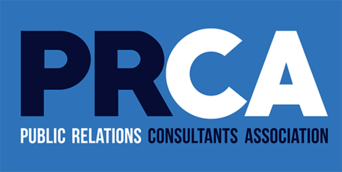Reputation Management: Central to Business Success
How a business is viewed by its stakeholders plays a major role in determining the level of its success. A good reputation can attract talent, improve retention rates, and enhance external relations. Conversely, a bad reputation may reduce revenue, impact stakeholder trust, and, potentially, trigger increased scrutiny and regulation. With this in mind, the importance of developing and maintaining a good reputation with stakeholders comes into stark relief.
Trust and credibility
Trust and credibility are central to a reputation management strategy. Stakeholders must feel that a business is trustworthy and credible. Its customers or clients must be able to trust that it provides a reliable product or service. However, that an organisation simply does these things is often not enough. To maximise opportunities for reputational enhancement, and consequently business success, it is prudent for businesses to take active steps to communicate these factors. For stakeholders to place their trust in a business, they must feel that they are being communicated with honestly and transparently. It is through regular engagement and consistent messaging that this sense of honesty and transparency is reinforced. This, in turn, can significantly enhance a company’s reputation.
Recognise the diversity of stakeholders
Maintaining this consistency is a challenge, especially as a business’s stakeholders often represent diverse, heterogeneous groups, such as customers, clients, employees, investors, the media, and the Government. As each of these groups have their own, sometimes competing, interests and unique relationships with a business, managing reputation is an extraordinarily complex process. In safeguarding, improving and managing reputation, stakeholder groups must be engaged with in a strategic manner, with particular attention being paid to the differences between them and the unique characteristics of each. A one size fits all approach is not just insufficient, but likely counterproductive. A deft touch is required to walk this tightrope between achieving the consistency inherent to maintaining a reputation, whilst also acknowledging the differences inherent to stakeholder groups and what will resonate with them.
Demonstrate what you advocate
There are few factors more important in preserving business reputation than ensuring that your actions harmonise with your communications strategy. Nothing damages an organisation’s credibility quite like muddled, contradictory messages. These send the impression not only that a business is unreliable, but that it is incidentally or, worse, deliberately misleading its stakeholders. Ensuring that a business’s communication strategy is aligned with its practice, goals and values is essential to safeguarding its reputation. No one values hypocrisy, and even the suspicion of it can wreak reputational havoc.
Handle reputation with care
Reputation management ought to be central to any business striving for success as, once lost, the path to regaining a good reputation is arduous. With this in mind, it is imperative that reputation’s fragility is appreciated. By engaging in ethical best practices, an organisation can ensure that it is perceived in a way that promotes its image as trustworthy and credible. Secondly, by engaging consistently, honestly and transparently with stakeholders a business can maintain and improve its reputation and relationship with all stakeholder groups. Lastly, by scanning the horizon for potential threats, businesses can anticipate and strategise for reputational risks. In taking such a proactive approach, businesses can mitigate any damage that these risks may cause.
Conclusion
While a positive reputation is at the heart of every business’s success, its absence poses an existential risk. By proactively engaging in reputation management, businesses can ensure that they continue to reap the benefits of a good reputation. It provides the opportunity to foster trust, enhance credibility, fortify stakeholder relationships, and sustain success. Strategic reputation management acts as both shield and sword. It simultaneously protects reputation from potential threats and pitfalls, whilst also allowing for the successful execution of plans and the achievement of business goals. By acknowledging reputation’s key role in precipitating success in the current business climate, companies can attain enduring trust, sustained growth, and continued relevance.










